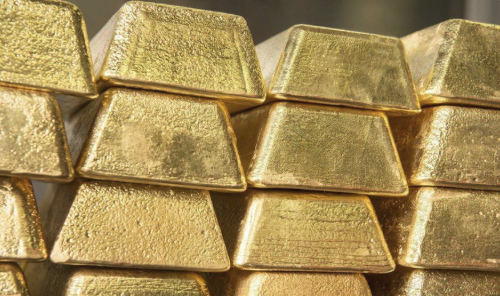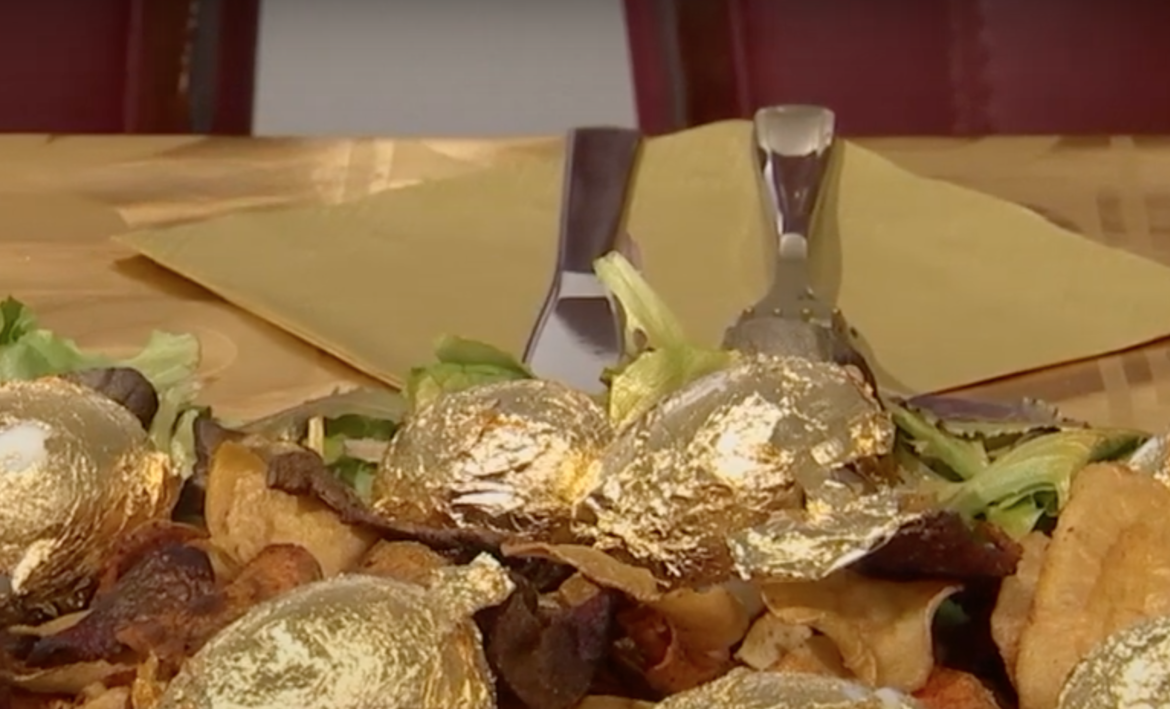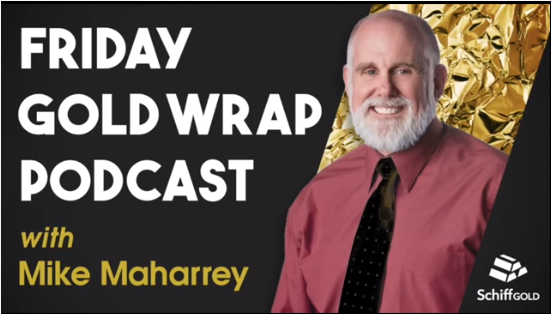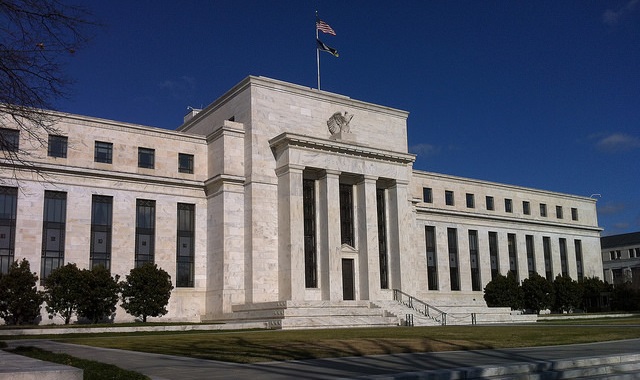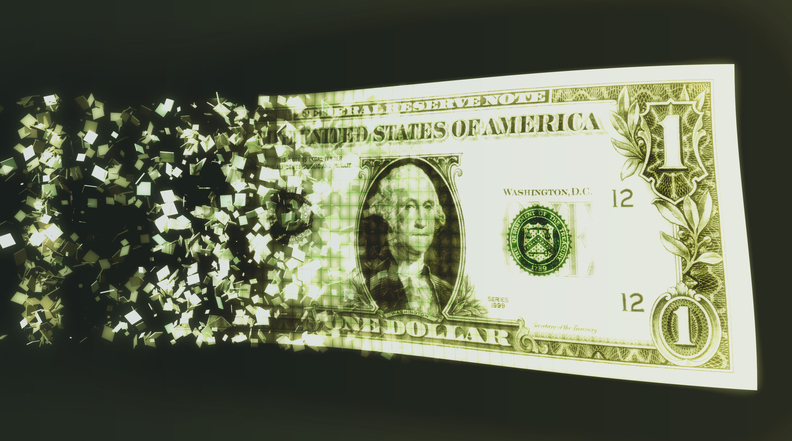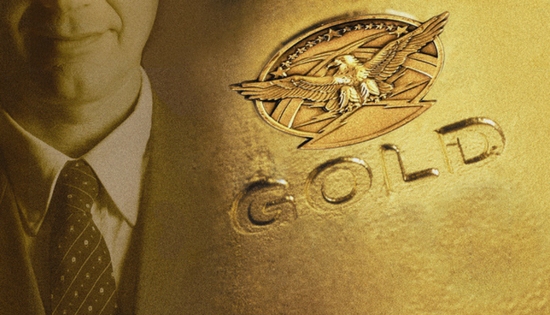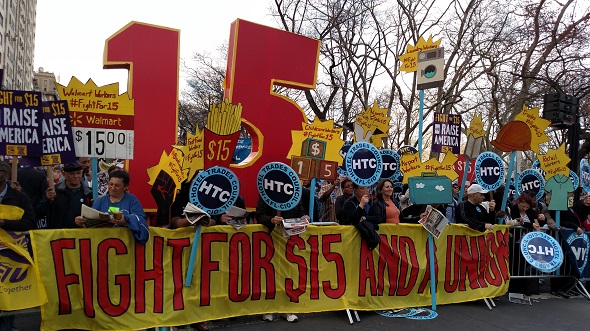The “Powell Pause” is not enough. President Donald Trump not only wants interest rates cuts; he wants to put quantitative easing back in play.
During an interview Friday, the president once again complained about the Fed’s 2018 interest rate increases, saying “they really slowed us down.” Trump wants stimulus and called on the Fed to resume Obama era QE.
Total gold holdings in ETFs grew marginally in March, resuming an upward trend that started last fall. Total holdings of the yellow metal globally rose 3 tons, with increases seen in every region, according to the most recent data released by the World Gold Council.
ETFs worldwide currently hold 2,483 tons of gold valued at approximately $103 billion.
I’ve written about gold-covered food here in my Fun on Friday column from time to time. People cover all kinds of foods with gold — including traditional blue-collar fare such as beer and chicken wings. I’ve even told you where you can get coffee with real gold mixed into it.
Well, this week I’m going to up my game. How about an entire meal covered in gold? And how about if we call it “art.”
In this week’s Friday Gold Wrap, Mike Maharrey covers some more bad signs in the economy, including rising oil prices, an unexpected drop in retail sales and a surge in negative-yielding government bonds. At best, it looks like the economy is slowing down. Or it could be the prelude to the next crisis. This raises an important question: who’s going to save us? Mike suggests we probably shouldn’t be counting on the politicians or the central bankers.
In the March 8 episode of the SchiffGold Friday Gold Wrap podcast, Mike Maharrey emphasized the importance of understanding sound economic theory. And as economist Frank Shostak explained, facts and figures aren’t enough to digest what’s going on in the economy.
In order to really make sense of the data one must have a theory, which stands on its own feet, and did not originate from the data. By means of a theory, one could scrutinize the data and could then try to make sense out of it.”
In a recent article published on the Mises Wire, economist Dr. Thorsten Polleit builds on this body of knowledge, explaining how central bank manipulations of interest rates not only distort the economy, the actually mess with our minds.
Ever since the beginning of the “Powell Pause,” Peter Schiff has been saying it won’t be enough.
If the Fed doesn’t want to upset the markets, soon it will be forced to go back to QE and zero percent interest rates.”
Peter isn’t alone in saying this. After the most recent FOMC meeting, Ryan McMaken at the Mises Institute echoed Peter’s message.
Put simply: the days of quantitative easing are back, and we’re not even in a recession yet.”
We’ve been following a number of central banks that have been buying gold recently, specifically the Russians and Chinese. But these two central banks aren’t alone. In fact, central bank gold-buying has surged over the last couple of years. What’s behind this trend?
As you probably know, Warren Buffett has never been a fan of gold and has publicly disparaged the yellow metal on more than one occasion. About a year ago, he compared investing in gold and stocks, arguing that over the long term gold is an “unproductive asset” that “doesn’t produce anything.” So, why have it, unless you just want something to “fondle.” At the time, we argued that Buffet’s comments fall apart when you realize that gold is money. After all, I doubt you would ever hear him say “never hold cash because it’s an unproductive asset.”
Well, Buffet is at it again.
The conventional wisdom is that demand for gold and silver has been somewhat tepid over the last couple of years. In fact, global gold demand grew by about 4% in 2018 and was in line with the five-year average. Much of that growth was due to a surged in demand through the fourth quarter as stock markets tanked, and concerns about debt and the global economy grew.
We tend to be pretty short-sighted when we look at market trends. Most investors focus on the day-to-day gyrations. As a result, we often completely miss significant long-term trends. For instance, investment demand for gold and silver has increased dramatically in the decade since the financial crisis.
Raising the minimum wage might be good politics, but it’s bad economics – despite what some economists say.
Last week, the Maryland legislature overrode the governor’s veto and adopted a $15 per hour minimum wage. It was a major victory for the “Fight for $15” crowd, but it almost certainly won’t be for low-skilled workers — at least not the ones who whose maximum wage will be $0 per hour because they cannot find jobs.




